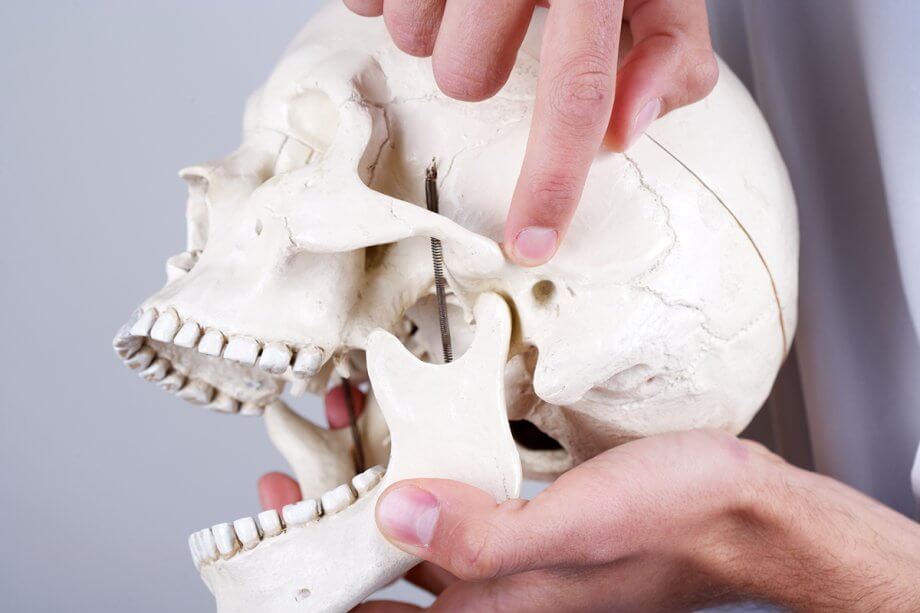Disorders of the temporomandibular joint (TMJ) can be painful as well as annoying. Mild cases may only cause a clicking or popping sound when you chew. More severe problems can cause pain in the face, neck, shoulders, and jaw. TMJ disorders can also lead to ringing in the ear, headaches, and stiffness or locking in the jaw. Fortunately, most patients suffering from mild to moderate TMJ disorders will find that the symptoms can be treated. Although for some people, TMJ symptoms may flare from time to time, for others, the condition may be resolved permanently with a custom oral appliance or orthodontic treatment.
What is TMJ?
TMJ is the acronym for the joint that connects your lower jaw to the skull. When this joint becomes inflamed, overused, or suffers a dislocation (derangement), you may be diagnosed with either Temporomandibular Disorder (TMD) or your dentist may simply say you’ve got TMJ.
Problems with TMJ tend to be caused by one of three things:
- Bruxism (clenching and grinding your teeth)
- Arthritis (osteoarthritis, rheumatoid arthritis, psoriatic arthritis, etc.)
- Malocclusion (problem with bite alignment)
- Dislocation of the joint (derangement of the joint)
Many people subconsciously grind their teeth to correct problems in the chewing surface of the teeth. Although stress and anxiety are no longer believed to cause bruxism, it is widely believed that stress and tension can exacerbate the condition. Therefore, your dentist may recommend relaxation techniques to help reduce grinding.
Your dentist may also provide occlusal treatment to realign the chewing surface of the teeth through orthodontic treatment such as Invisalign. In other cases, prescribing a custom oral appliance to wear at night may be sufficient to treat bruxism.
All types of arthritis share a common symptom of inflammation, which can lead to a breakdown of cartilage, and ensuing pain. To treat inflammation in the joint, your dentist may recommend you temporarily switch to a soft food diet. You may be advised to ice your jaw. You may also need to take anti-inflammatory medications to relieve the pain. In severe cases where TMJ disorders prevent you from sleeping, medicines such as sedatives or muscle relaxers may be prescribed in the short term.
If you have a disc dislocation in the TMJ, you will likely need to be referred to a surgeon specializing in these rare surgeries. Surgery is always reserved as a last resort in cases where all other treatments have failed to alleviate your pain. Derangement of the TMJ may be present at birth or result from an accident, injury, or other trauma.
How is TMJ Diagnosed?
Dentists diagnose TMJ via exams and digital imaging. If you suspect you have a TMJ disorder, your dentist will ask you to open and close your mouth. They will be listening for clicking, popping, or snapping sounds. They will examine your teeth to look for signs of wear, indicating that you’re grinding or clenching your teeth at night. They will ask you to bite down to determine if you have a malocclusion (alignment problem). You may also need digital x-rays or other imaging tests to confirm a TMJ disorder. Once your dentist has confirmed the diagnosis, a custom treatment plan will be designed to treat TMJ.
Schedule an Appointment for TMJ Treatment in Scarsdale
If you’re experiencing pain in your jaw, face, neck, or ears, or jaw clicks, pops, or locks, it’s time to seek treatment for TMJ. Scarsdale Dental Group dentists are highly trained and experienced in helping correct bite problems and provide relief from teeth grinding. To schedule an appointment, call 914-723-4707 . You're welcome to request an appointment online, and one of our friendly team members will reach out to confirm.


